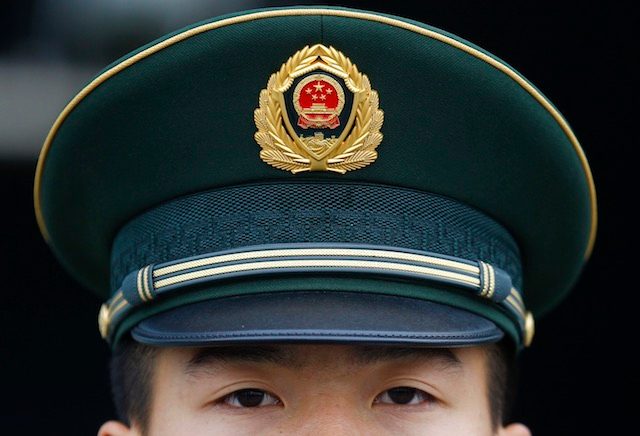SUMMARY
This is AI generated summarization, which may have errors. For context, always refer to the full article.

BEIJING, China (UPDATED) – China will boost its military spending by 10.1% this year to 886.9 billion yuan ($141.45 billion) as it cranks up its development of high-tech weapons systems, the government announced on Thursday, March 5.
The spending increase, which will outpace China’s slowing, single-digit GDP growth, builds on a nearly unbroken two-decade run of annual double-digit rises in the defense budget.
Years of robust expenditure have fueled a military build-up that has rattled nerves around the region, particularly as China has taken an increasingly robust line on its territorial disputes in the East and South China Seas.
Countries from India to Vietnam have been working to narrow the military gap with China through weapons purchases and cooperation.
“We will comprehensively strengthen modern logistics, step up national defense research and development of new- and high-technology weapons and equipment, and develop defense-related science and technology industries,” Premier Li Keqiang said in an annual report to China’s parliament, the National People’s Congress.
“Governments at all levels must always take an active interest in and support the strengthening of our national defense and armed forces.”
Last year, defense spending was budgeted to rise 12.2% to $130 billion, second only to the Pentagon’s proposed $534 billion base budget for the U.S. military.
“We must develop our weaponry and raise the standards of treatment for military personnel, only then will we be able to really strengthen our strategic combat effectiveness. Then no enemy will dare to bully us,” said Lieutenant General Zhong Zhiming, a delegate to the congress.
Concerns ‘misplaced and unfounded’
The official Xinhua news agency said concerns sparked by the spending increase were “misplaced and unfounded”, saying China’s defense spending was not big given that it had a large territory and the world’s biggest population. It also pointed to increases in Japan’s military budget.
“A responsible and major stakeholder like China needs sufficient strength to prevent a possible conflict or war lodged by miscalculating, hot-headed neighbors, and maintain a stable and peaceful Asia-Pacific region and the world as a whole,” it said.
On Wednesday, March 4, the news agency noted the 2015 target would represent the slowest growth in military spending in 5 years.
The level remained within “the fat of the bell curve” of annual spending over the longer term, said Richard Bitzinger, a senior fellow at the Institute of Defence and Strategic Studies at Singapore’s S. Rajaratnam School of International Studies.
“The defense budget is basically no longer tied to economic performance,” he added. “There is a political decision made across the board in China that defense spending is sacrosanct, untouchable.”
Taiwan’s main opposition Democratic Progressive Party expressed concern about the rise, saying China’s two decades of rapid increases in defense spending had come despite China not facing “any visible threat”.
While Beijing keeps the details of its military spending secret, experts have said additional funding would likely go towards beefing up the navy with anti-submarine ships and developing aircraft carriers beyond a sole vessel in operation.
For the second year in a row, the stability-obsessed country did not disclose its full spending on domestic security – a figure that generated controversy in years past because it had exceeded defense spending.
A crackdown on corruption that has ensnared some of China’s top uniformed officials appears not to have had much effect on the budget, as Xi keeps spending high to keep the top brass happy. – Megha Rajagopalan and Sui-Lee Wee, with reports from J.R. Wu in Taipei, Reuters / Rappler.com
($1 = 6.2701 yuan)
Add a comment
How does this make you feel?
There are no comments yet. Add your comment to start the conversation.